
DHA increases access to telehealth during COVID-19 pandemic
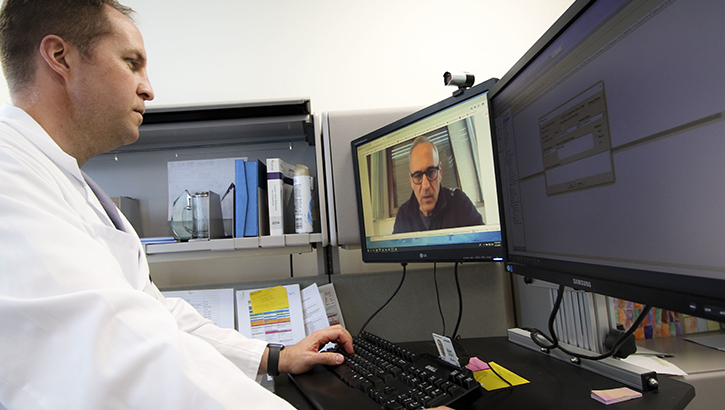
U.S. Air Force Lt. Col. Brendt Feldt, a surgeon at Landstuhl Regional Medical Center’s Ear, Nose and Throat Clinic, conducts a virtual health appointment via synchronous video. Innovations in virtual health, particularly telehealth, have been essential to continuing quality care for beneficiaries during the COVID-19 pandemic. DHA has made temporary changes to TRICARE regulations to expand telehealth care and prevent the spread of COVID-19. (Photo by Marcy Sanchez)
Innovations to telehealth are essential to patient care during the COVID-19 pandemic. The Military Health System recognizes the importance of telehealth to prevent in-person spread of the novel coronavirus while still providing quality care to beneficiaries. As a result, the Defense Health Agency is making three temporary revisions to TRICARE regulations regarding telehealth with unprecedented speed.
DHA published an interim final rule in the Federal Register May 12, 2020. The rule invoked temporary changes to how beneficiaries and providers receive and provide telehealth care. These changes to the TRICARE telehealth rules were not Congress-directed. DHA acknowledged the need to make temporary changes to telehealth policy and took action to expand access to care during the COVID-19 pandemic.
Changes to regulation that require publication to the Federal Register usually take six months to a year to implement. However, DHA sought to expedite the process due to the urgency to continue providing care during the pandemic. DHA recognizes that both beneficiaries and providers may have technical and capacity limitations to the expansive telehealth demand created by both social distancing recommendations and restrictions to person-to-person interactions.
“The speed in which the DHA was able to respond to an identified need of expanding telehealth opportunities and get a rule change published is credit to the dedication of our great staff working tirelessly for our beneficiaries,” said Christopher Priest, deputy assistant director, Health Care Operations, DHA. “These are challenging times, but every day I see colleagues striving to improve how we deliver the TRICARE benefit under unprecedented conditions.”
The agency hopes to implement changes to beneficiaries worldwide in 30-90 days. Once implemented, changes made through the interim final rule will stand as long as the country remains in a state of national emergency, as declared by the president March 13, 2020.
The first change gives beneficiaries access to audio-only telephone visits with their providers. TRICARE will permit audio-only health care visits to improve access to care for beneficiaries that cannot access audio-visual care. Beneficiaries that cannot access audio-visual care due to lack of in-home technology, such as smartphones or computers, or who live in remote areas without the bandwidth for video conferencing, can take advantage of this service.
DHA is also increasing the provider access to care with the second regulatory change: TRICARE will reimburse providers that practice interstate telehealth where permitted by federal or state law, even if the provider is not licensed in the state where they are remoting in. Usually, providers that offer telehealth must be licensed in both the state where they practice and the state where their beneficiaries reside. This requirement will be temporarily modified to allow providers to expand their telehealth reach and still qualify for reimbursement. The rule also applies to providers overseas as long as a provider holds an equivalent license in another nation, and the host nation permits such practice.
The third change temporarily waives cost-shares and copayments for covered, in-network telehealth services. This change doesn’t cover just services related to COVID-19, but all telehealth services inside of the network. DHA hopes that by removing these costs, beneficiaries take advantage of telehealth and reduce exposure of others to TRICARE beneficiaries who may have the novel coronavirus.
Although the new rules are effective May 12, it will take time for all of the changes to be fully implemented. Beneficiaries may still be assessed a copay for telehealth services over the next few months, but adjudicated claims will either be pended or copays may be reimbursed. Some changes may remain in effect beyond the national emergency for overseas locations. DHA will reevaluate telehealth changes in the long term once the threat of COVID-19 diminishes.
DHA remains dedicated to transparency, while working to swiftly to reduce inconvenience for their beneficiaries and providers. Future updates will be posted to Health.mil and TRICARE.mil as they are finalized.
Using mobile mental health apps to cope during social isolation
Article
5/22/2020
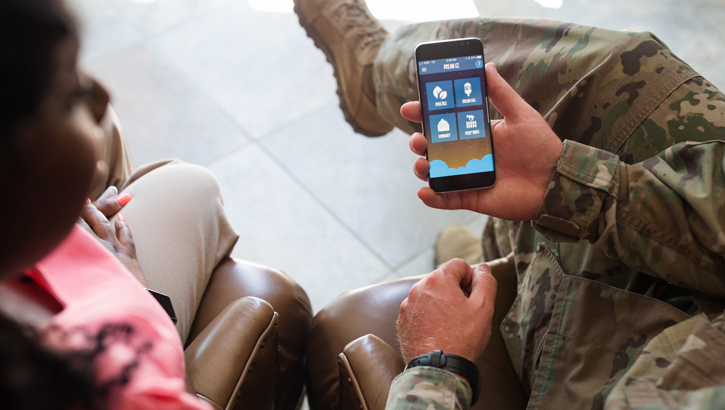
Learn how your smartphone can serve as a lifeline
Medical maintainers play key role in Army’s response to COVID-19
Article
5/22/2020
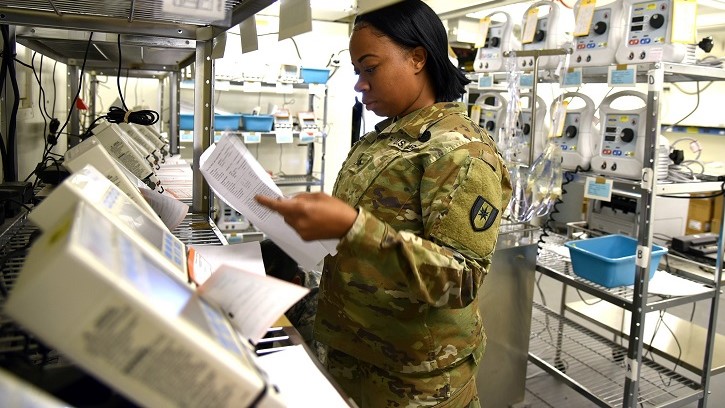
In the field, Soldiers trained as Biomedical Equipment Specialists, or 68As, handle unit-level sustainment of deployed medical devices.
COVID-19: lifestyle tips to stay healthy during the pandemic
Article
5/22/2020

With this unprecedented lifestyle shift, there is a potential for the normalization of a more sedentary lifestyle.
VENDOR UNSOLICITED PROPOSAL IN SUPPORT OF COVID-19
Form/Template
5/21/2020
Unsolicited Proposal Information Supporting COVID-19
NMHM opens ‘virtual doors’ to the public during COVID-19
Article
5/21/2020
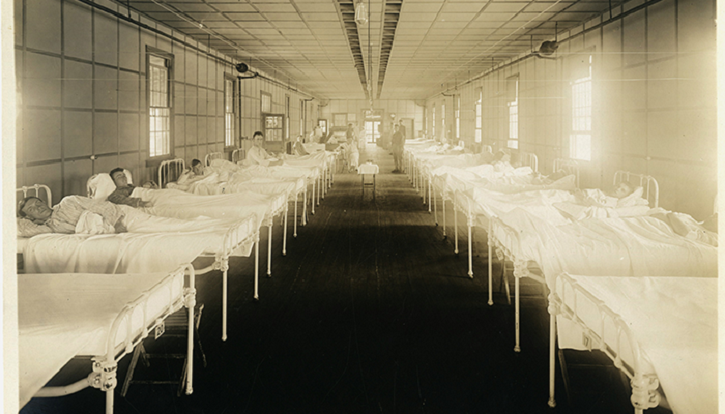
In the current climate of COVID-19 and stay-at-home orders, virtual environments have become an invaluable means of entertainment and education.
Air Force bioenvironmental engineers expand mission in aerovac, workspaces
Article
5/21/2020
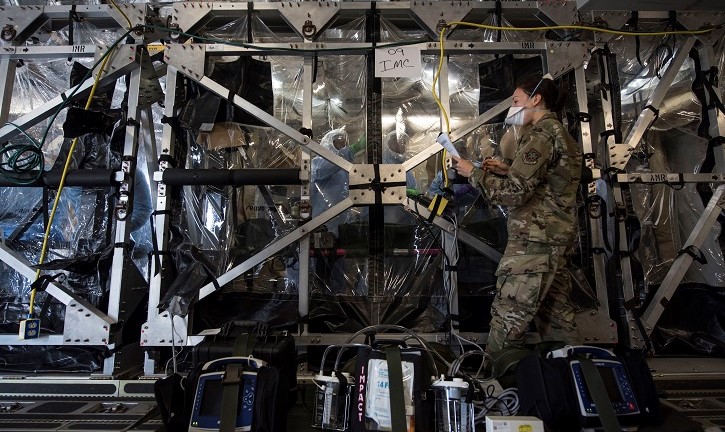
The aeromedical evacuation mission became a top priority as COVID-19 began to spread.
Guidance for Commanders on Risk-Based Changing of Health Protection Condition Levels During the Coronavirus Disease 2019 Pandemic
Publication
5/20/2020
This memorandum provides guidance for commanders to consider when making decisions to change health protection condition (HPCON) levels as COVID-19 pandemic conditions on and adjacent to our installations begin to improve.
NHB/NMRTC Bremerton’s PHEO leans in on COVID-19 pandemic
Article
5/20/2020
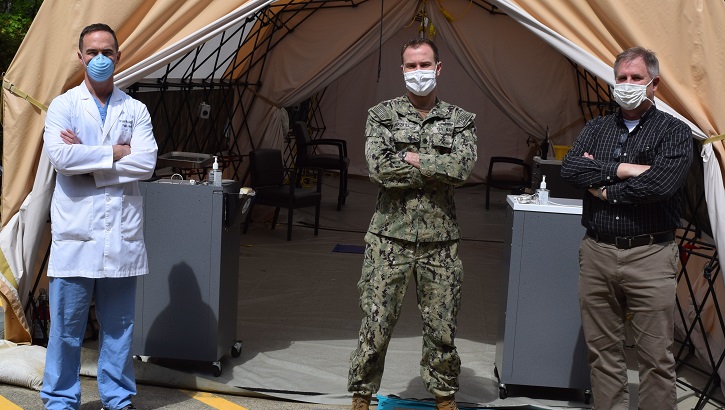
It’s been long days preparing for the unpredictable, limiting the unforeseen and controlling the unexpected.
Resuming Elective Surgical, Invasive, and Dental Procedures in Military Medical and Dental Treatment Facilities
Publication
5/19/2020
This memorandum provides guidance on how each Military Medical Treatment Facility (MTF) and Dental Treatment Facility (DTF) may resume elective medical and dental procedures.
METC creates innovative training to graduate RT students
Article
5/19/2020
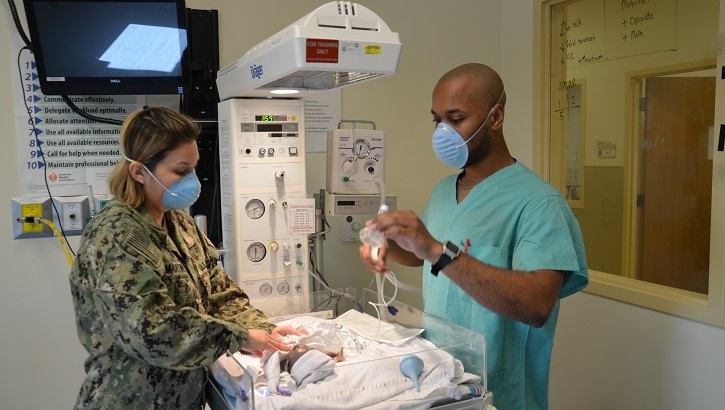
When COVID-19 interrupted phase 2 clinical training a class of Army and Navy respiratory therapist students needed to from the program, their clinical training instructors developed a plan and put it to action.
Military chaplains emphasize spiritual health during COVID-19 pandemic
Article
5/19/2020

In a time of great fear, spiritual health remains an important domain of Total Force Fitness.
RWBAHC Soldier Shows compassion, initiative in COVID-19 Screening
Article
5/18/2020
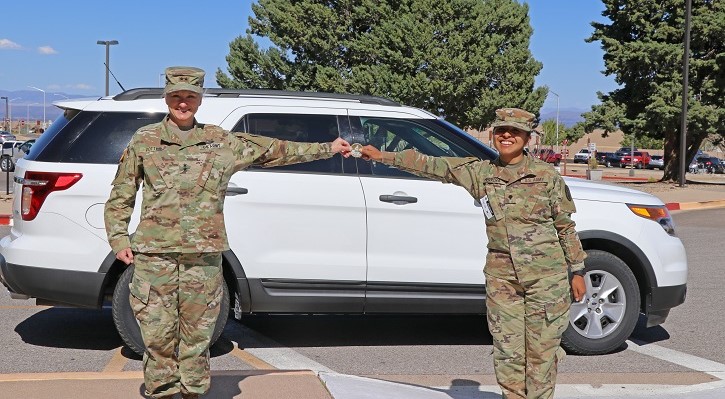
"This type of behavior needs to be highlighted and awarded because it is truly what makes this organization great."
Expert panel on infection control to tackle COVID-19 questions
Article
5/18/2020
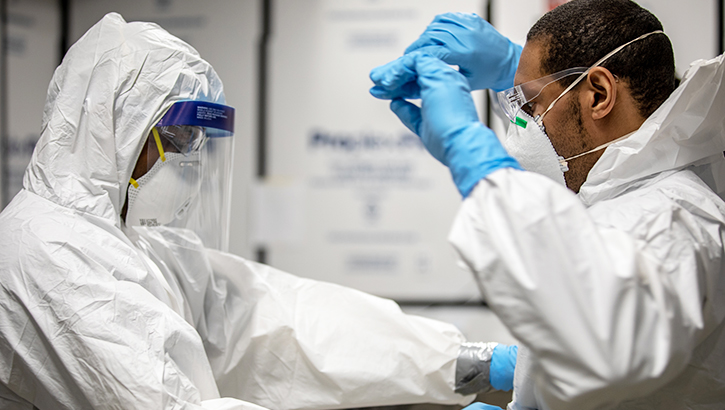
How are patient safety decisions made during the pandemic?
DoD COVID-19 Practice Management Guide Version 3
Technical Document
5/14/2020
This COVID-19 Practice Management Guide has been rapidly and thoughtfully developed by a multi-specialty group of 60 subject matter experts from across the Department of Defense Military Health System. The intent of this publication is to provide clinicians and military medical treatment facilities (MTFs) with best practices based on latest evidence to optimize DoD response to the current COVID-19 pandemic. This Practice Management Guideline consolidates resources and optimizes the management of patients requiring clinical care during the global COVID-19 pandemic.
DHA leaders bring expertise to DoD COVID-19 Lab Testing Task Force
Article
5/14/2020

Testing a key next step in the coronavirus fight































No hay comentarios:
Publicar un comentario